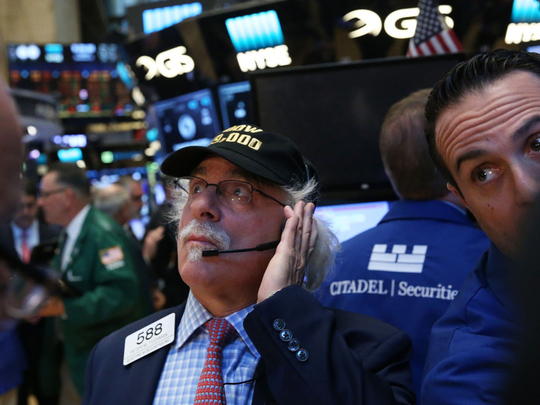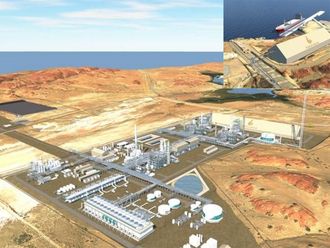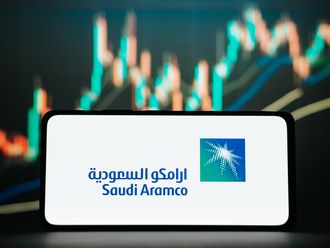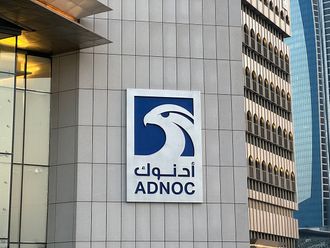
Dubai: US stocks continued to break records on Tuesday, with the Dow Jones Industrial Average (DJIA) topping 19,000 level and the S&P 500 index breaking through 2,200.
The indices have been on a record breaking spree — their first time since 1999 — on anticipation that the new administration of Donald Trump, who will become the 45th US president in January, will boost growth. Trump said the first 100 days of his presidency will focus on business and deregulation.
The DJIA was 0.22 per cent higher at 18,999.18, after hitting a high of 19,013.12, while the S&P 500 was 0.75 per cent higher at 2,202.69.
The Nasdaq Composite Index was also up 0.39 per cent to be at 5,389.69.
“There is a lot of cash floating around and there are clearly investors out there thinking that they should get on the bandwagon now because of this whole notion that the Trump administration is going to kick-start growth,” Peter Garnry, Head of Equities Strategy at Saxo Bank told Gulf News over email.
Loose fiscal policy would mean increasing spending on infrastructure, and that would imply growth will further strengthen in the US.
The rally is also aided by a possibility of an Opec deal to cut output, which could its first in a gap of 8 years. “There is too much optmisim on an Opec deal, which is also playing its part,” said Naeem Aslam, chief market analyst, Think Markets.
“For this year, we expect developed equities and dollar would continue to look higher, and we also expect the strength to continue into first quarter of next year on confidence in the US economy,” Aslam added.
So far in the year, the S&P 500 index has gained 7.70 per cent since the start of the year, while the DJIA has accumulated gains of 9 per cent since January 1. The performance in developed market is far ahead compared to emerging markets.
Elsewhere in the emerging markets, the MSCI emerging market index was up more than a per cent to be at 858.91, after witnessing a sell-off in the past few sessions. The MSCI Emerging market index has remained almost unchanged since January 1, after gaining as much as 10 per cent at one point. Stoxx Europe 600 Index was up 0.46 per cent.
Back home, the Dubai Financial Market General Index closed 0.47 per cent lower at 3,290.76. The Abu Dhabi Securities Exchange index closed 0.26 per cent lower at 4,218.72.
Breather:
The dollar index took a breather after gaining reaching its over a year high in the previous session. The dollar index was down 0.07 per cent at 100.87.
“The dollar should continue to appreciate with a more hawkish Fed and rising rates. An extension of the ECB’s QE program until December next year could also be a trigger for a stronger dollar next year,” said Valentin Bissat from Senior Economist/Strategist at Mirabaud Asset Management.
Emerging markets could continue to feel the heat on strong greenback.
“Emerging markets would feel more pressure due to a stronger dollar, and hence funds will flow out of emerging to developed markets,” Aslam added.












